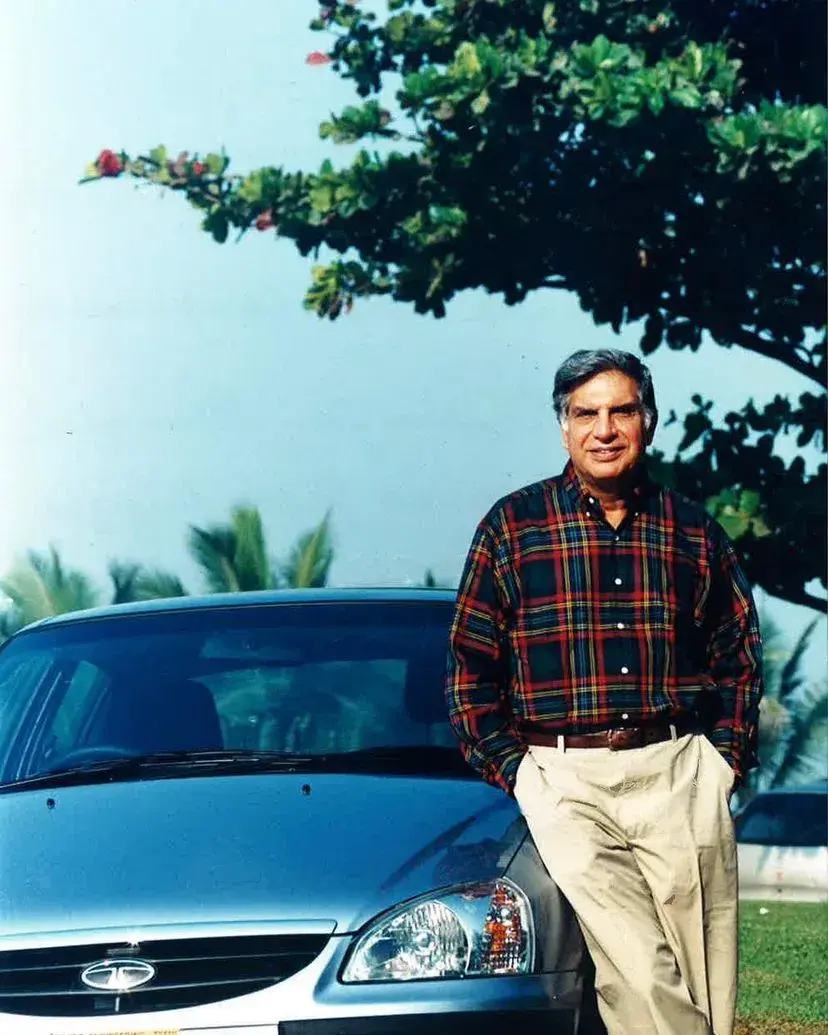10 Lesser Known facts about Ratan Tata
An icon of Indian industry and philanthropy, the late Ratan Tata died on October 9, 2024. Ratan was the Chairman of Tata Sons and helped the Tata Group establish its position on the global map. While his professional accomplishments are well documented, there’s a whole host of fascinating things about his personal life that don’t get quite the same attention. Below we get a list of 10 such interesting facts about the legend.

An Architect at Heart
Although Ratan Tata is usually known for his corporate knowledge, anyone barely knows that he enrolled in a study course in architecture. He studied architecture at Cornell University in the US before returning to India to work in the family business. This creative leaning persisted to sway over his business tactics, especially in product designs like the Tata Nano.
The Tata Nano Project Was close to his heart
The Tata Nano, the world’s cheapest car ever, was not much of a commercial success, but it was also one project that remained very close to Ratan Tata’s heart. He wanted to build a small, cheap car for the Indian family that would destroy cars’ playboy image of something only rich people could afford. When the car was launched in 2008, Tata Nano was a brave move by the Indian car market.
The Personal within the Public
Though one of the most prominent names to come out of India, Ratan Tata led an intensely private life. He never wed and has talked frequently about his lack of fulfillment in love, saying he did once come close to the aisle but was thwarted. He never made a secret of the fact that he had chosen to be single for most of his life because of his sense of duty to journalism.
The Silent Philanthropist
While Ratan Tata is renowned for his philanthropy, he rarely flashed the spotlight on himself for his charitable deeds. He had used the Tata Trusts to funnel money into health care, education, and India’s rural villages. He considered philanthropy to be silent, and many of his good deeds had been hidden for years and sometimes surfaced only after years.
Resilience Amidst Crisis
Ratan Tata had to navigate tough times in his tenure during the Mumbai terror attacks 26/11 in 2008, while Taj Mahal Palace, a Tata Group hotel flag-bearer, was one of the primary targets. Ratan Tata did something unusual when the trade business tycoon not only rebuilt his iconic hotel but also took care of devastated families and especially employees (irrespective of caste/region) who lost or risked their lives.
Ratan Tata and his dog love
Only a few know about Ratan Tata’s love for dogs. In fact, at the Tata Group Mumbai headquarters at Bombay House, they maintain a dog shelter for stray dogs. This love for animals revealed his tender-hearted nature and was a quality that lent itself to many of his philanthropic endeavors.
Aviation enthusiast
It was no secret that Tata shared a passion for aviation. He was an FAA-certified pilot who frequently traveled on his private plane. The aviation bug bit the Tatas not only personally but also from a business point of view, with Air India becoming part of the Tata Group in 2021. For the company, it was something of a full-circle moment, as Tata’s predecessor J.R.D. Tata had set up Air India in 1932.
The Reclusive Investor
Though Ratan Tata had stepped down as chairman of Tata Sons in 2012, he continued to be involved in the business world with his personal investments. His portfolio includes investments in a range of Indian startups, including Ola, Paytm, and Zivame. His eye for spotting and helping bring upstart businesses into the world has underscored how much his forward focus served him well.
Overcame Early Doubts
Now let us go back to the period between 1991 and 2012 when Ratan Tata was chairman of Tata Sons. Many wondered whether he could equal J.R.D. Tata, who had preceded him at the top. He has proved not only that his critics were wrong but also has transformed the Tata Group into one of the most powerful global entities. His strategic buyouts of Toyota Tea, Corus Steel, and Jaguar Land Rover (taken together) stand as a testament to his exemplary foresight.
A Mentor to Many
In a way, Ratan Tata was not just a mentor at work. His rapport with Shantanu Naidu, a social entrepreneur in his 20s whom he recruited to manage his personal office, is an example of the manner in which the Infosys founder likes to build young talent. This mentorship was more than mere counseling; it represented Tata’s faith in supporting the future leaders.
Conclusion
Ratan Tata was not just known for his business acumen; he was also a true reflection of humility, respect for others, and love for society. From the boardroom to his life off camera. 10 facts you may not know about him. A loss the world and India will mourn—hhis values and his contributions will motivate generations to come.




